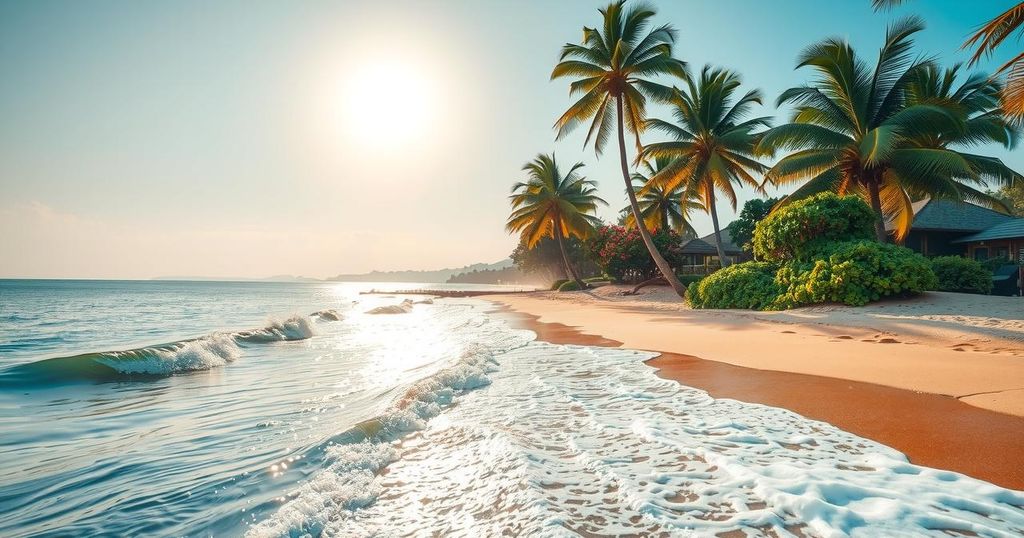Canadians are increasingly choosing to vacation in tropical destinations such as Jamaica, Mexico, and Brazil instead of the United States due to high hotel prices, a weak exchange rate, and frustrations with U.S. economic policies. This trend is significantly impacting tourism in the U.S., particularly in Florida, where Canadian tourists are essential to the local economy. Airlines are adjusting flight routes to cater to this growing preference for more affordable and welcoming destinations.
Canadian travelers are increasingly turning away from the United States for vacations, favoring tropical destinations such as Jamaica, Mexico, Brazil, and Aruba. Factors influencing this change include rising luxury hotel prices, a struggling exchange rate, and economic tensions that make U.S. vacations less appealing. In the U.S., the number of hotels costing over $1,000 per night has increased significantly, making high-end stays unaffordable for many Canadians.
High travel costs in the U.S. are prompting Canadians to seek value in destinations where their money stretches further. Proposed tariffs on Canadian imports during the Trump administration have likewise stirred frustration, leading some to boycott American tourism. Rather than overspending on basic accommodations in U.S. cities, travelers are opting for luxurious, all-inclusive resorts abroad where they receive more for their dollar.
Historically, Canada has been the leading source of international tourists in the U.S.; however, rising costs and economic instability are causing a notable shift. Requesting Canadians to reconsider their spending in the U.S., Prime Minister Justin Trudeau urges a focus on tourism alternatives, while British Columbia Premier David Eby echoes similar sentiments. This growing trend results in a surge of cancellations for trips to the United States and a redirection of tourism dollars towards destinations like Jamaica, Mexico, Brazil, Saint Kitts, and Aruba.
The Florida tourism sector is particularly vulnerable, as Canadians comprised 38% of all foreign visitors there in 2023. A decline in Canadian tourism could significantly impede local businesses, including hotels and restaurants. With the U.S. exchange rate proving unfavorable, luxury travel options there are becoming out of reach, pushing Canadians toward more affordable experiences in Southern destinations.
For example, the current exchange rate provides Canadians significant value abroad, allowing for luxury accommodations in destinations such as Jamaica, where 1 CAD equals 110.15 Jamaican Dollars. Similarly, the Canadian dollar translates to 14.33 Mexican Pesos and 4.03 Brazilian Reals, enhancing the affordability of excursions and dining options. Consequently, Canadians experience less financial strain while enjoying similar luxury features found in the U.S.
Additionally, cumbersome U.S. travel requirements, such as stringent visa policies and security measures, have made visiting less enticing compared to Caribbean destinations with more lenient entry procedures. Regions like Aruba and Saint Kitts promise sunny weather throughout the year, standing in stark contrast to the unpredictable climate in certain U.S. locales, particularly Florida.
Amid changing sentiments towards spending in the U.S., airlines are responding to this shift by increasing flight routes to Mexico, the Caribbean, and South America. This influx of direct flights will facilitate travel to these warmer destinations, subsequently benefiting tourism in those locales.
Economic consequences from this trend are evident, with the U.S. potentially losing billions in tourism revenue. Meanwhile, Caribbean nations such as Jamaica and Mexico witness growing numbers of Canadian tourists, resulting in record bookings and increased spending in local economies. The continuation of high costs and economic strife in the U.S. ensures this trend will persist, compelling a reevaluation of the American approach to Canadian tourists.
This significant shift among Canadian travelers away from the United States towards Caribbean and Latin American destinations is largely driven by rising travel costs, unfavorable exchange rates, and decreasing appeal due to strict U.S. economic policies and border regulations. The resultant growth in tourism for places like Jamaica, Mexico, and Brazil highlights the need for the U.S. to reconsider its approach to maintaining Canadian tourist interest. Ultimately, Canadians are prioritizing value, ease of access, and hospitality in their travel choices.
Original Source: www.travelandtourworld.com




